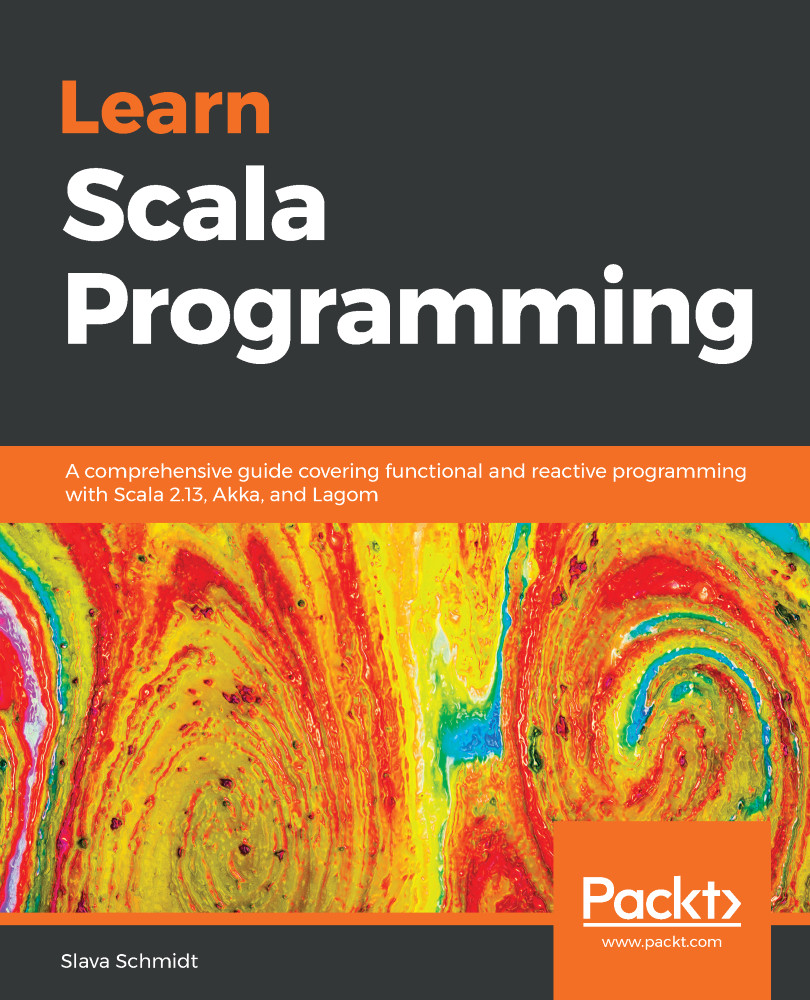The strong type system is one of the most important parts of the Scala language. Like a double-edged sword, it helps the compiler to verify and optimize the code on one side, while at the same time guiding developers toward possible correct implementations and preventing them from making programming mistakes on another side. As with any sharp tool, it requires some skill so that it can be used for carving beautiful source code without cutting the user in the process.
In this chapter, we will improve this skill by recapping and summarizing basic type-related knowledge, taking a look at a new type that was introduced in Scala 2.13, and finally looking at some advanced usages of types.
The following topics will be covered in this chapter:
- Different ways to create a type
- Different ways to parameterize a type
- Kinds of types
- Using types to express domain...


